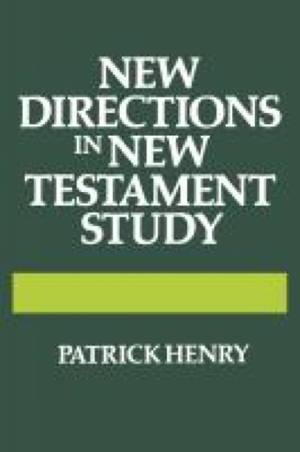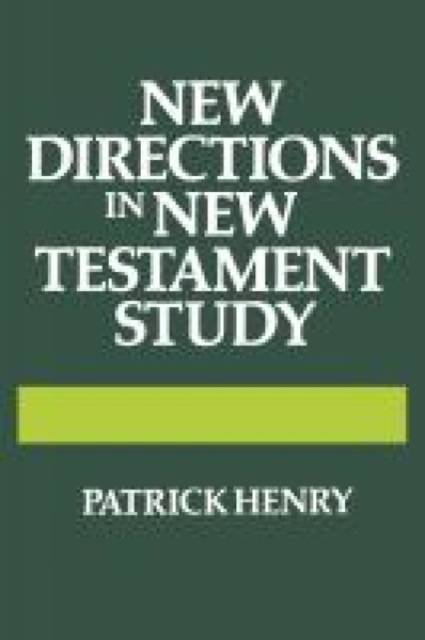
Bedankt voor het vertrouwen het afgelopen jaar! Om jou te bedanken bieden we GRATIS verzending (in België) aan op alles gedurende de hele maand januari.
- Afhalen na 1 uur in een winkel met voorraad
- In januari gratis thuislevering in België
- Ruim aanbod met 7 miljoen producten
Bedankt voor het vertrouwen het afgelopen jaar! Om jou te bedanken bieden we GRATIS verzending (in België) aan op alles gedurende de hele maand januari.
- Afhalen na 1 uur in een winkel met voorraad
- In januari gratis thuislevering in België
- Ruim aanbod met 7 miljoen producten
Zoeken
Omschrijving
It is more than a decade since any author attempted to survey recent developments in New Testament study. Small wonder, given the vast amount of literature produced on the subject and the complexity of the issues involved. No worthwhile survey can still adopt the approach common in the mid-sixties, when commentators could content themselves with reporting the latest on Q or the authorship of Ephesians or the reliability of Acts. New Testament study is no longer an isolated discipline, and an appreciation of the present scene requires attention to the influence of sociology, psychology and the liberal arts on research as well as a wider knowledge of first-century Judaism and a new climate in ecumenical biblical scholarship. Dr Henry has a fascinating story to tell. After setting the current scene he presents the fundamental thesis of his account, that thinking historically is vitally important and has positive implications for spiritual life. Arguing that several of the questions with which Christians are concerned today were already apparent in the early years of the church, he goes on to discuss major religious, cultural and intellectual factors in the shaping of early Christianity, Judaism and Gnosticism. After chapters on Jesus and Paul come evaluations of sociology, comparative religion and psychology and an account of the astonishing development of Roman Catholic scholarship in the past thirty years. The book ends with a consideration of present and future implications of these developments.
Specificaties
Betrokkenen
- Auteur(s):
- Uitgeverij:
Inhoud
- Aantal bladzijden:
- 300
- Taal:
- Engels
Eigenschappen
- Productcode (EAN):
- 9780334011149
- Verschijningsdatum:
- 21/06/2012
- Uitvoering:
- Paperback
- Formaat:
- Trade paperback (VS)
- Afmetingen:
- 156 mm x 234 mm
- Gewicht:
- 426 g

Alleen bij Standaard Boekhandel
+ 124 punten op je klantenkaart van Standaard Boekhandel
Beoordelingen
We publiceren alleen reviews die voldoen aan de voorwaarden voor reviews. Bekijk onze voorwaarden voor reviews.









